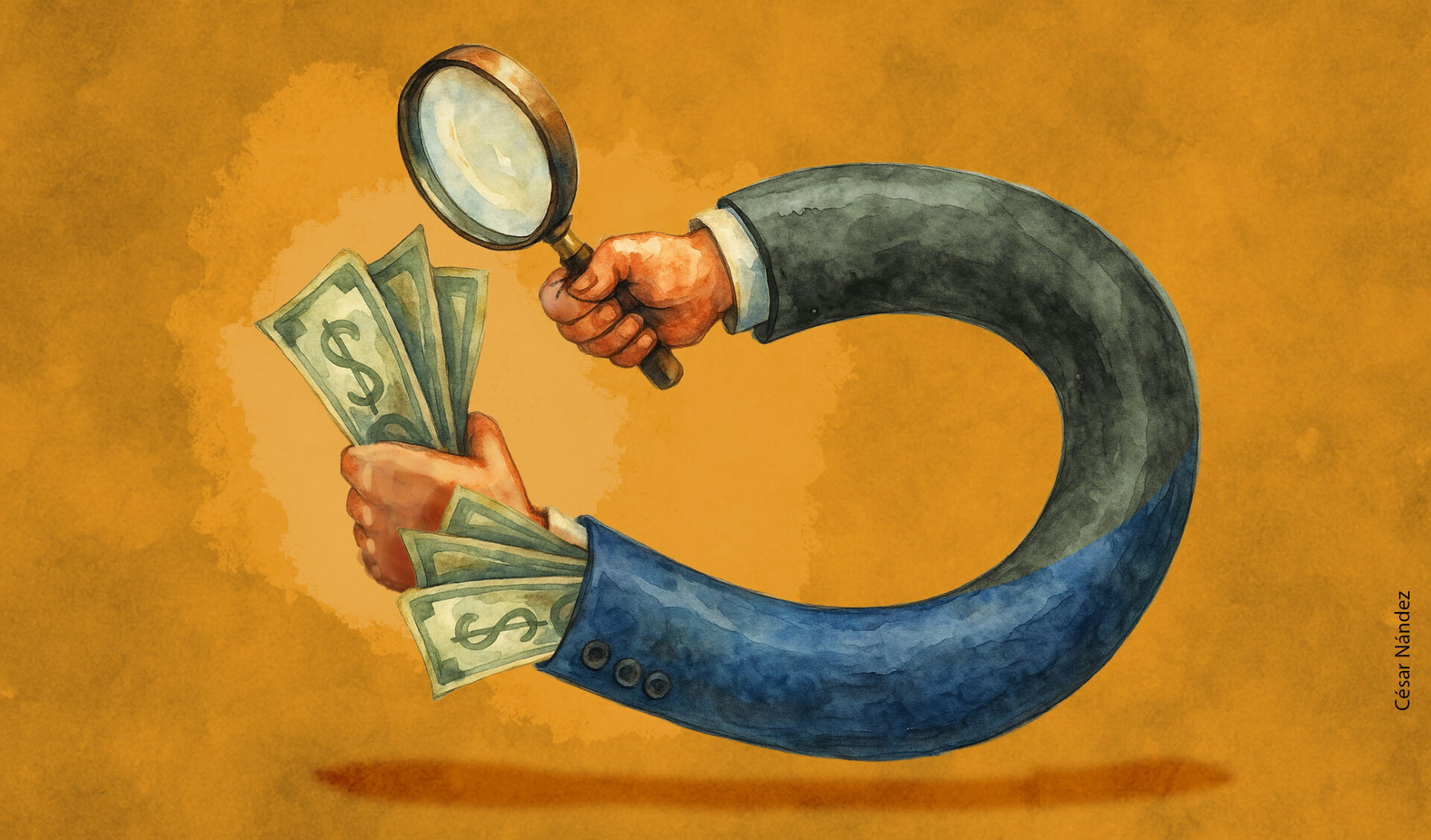Public opinion polls show that President Lula faces a challenging landscape in his third term: his approval ratings are significantly lower than during his first years in office between 2003 and 2010. While this is not a phenomenon unique to Brazil—presidential popularity has declined across most of Latin America—the Brazilian case is particularly striking. Even with positive economic indicators, such as GDP growth above the global average, falling unemployment, and rising incomes, public support for the government is faltering and shows no clear signs of recovery.
According to the latest survey by Quaest, one factor that explains this gap between economic performance and public approval is the growing concern among Brazilians about corruption. Other surveys back up these findings. The institute PoderData, for example, revealed that 47% of respondents believe corruption has increased under the current administration. Instituto Atlas indicated that corruption has once again become the country’s most pressing issue, overtaking even crime and drug trafficking — problems historically seen as direct threats to the daily lives of Brazilian families.
The return of corruption to the center of public debate coincides with the fallout from a recently uncovered scandal: the diversion of public employees’ pension funds to associations that provide services to retirees, through a scheme involving staff at the National Social Security Institute (INSS). Although the scheme originated under the previous administration, it was dismantled by the Federal Police and the Office of the Comptroller General—both strengthened under and subordinate to the current government. President Lula ordered the dismissal of the agency’s leadership and pledged to return the diverted funds to beneficiaries. Nonetheless, the decision cost him the support of a political party in his governing coalition that held the relevant ministry.
In theory, the government should be credited for its efforts to address the irregularities, sanction those responsible, and strengthen institutional integrity. Instead, the result has been the opposite: political wear and a drop in public approval. Rather than highlighting the government’s proactive role in combating corruption, part of the press directly associated the scandal with the president. The effect is perverse: those who fight corruption are punished—not those who orchestrated or benefited from it. In this context, the incentive turns negative; after all, if exposing corruption is more damaging than hiding it, the message becomes: better not to reveal anything at all.
This is the paradox in which Jair Bolsonaro reemerges. During his presidency, there was a systematic weakening of oversight and accountability mechanisms, with interventions in institutions like the Federal Police, the Revenue Service, the Financial Activities Control Council (Coaf), and the Public Prosecutor’s Office. Yet Bolsonaro repeatedly claimed there was “no corruption” under his government. Despite being refuted by multiple investigations, this statement resonated with voters. In the logic of the former president—and unfortunately, in what appears to be an increasingly accurate political reality—what isn’t revealed simply doesn’t exist. The absence of transparency, paradoxically, becomes political capital.
But how can this be explained?
In political science, there is a widely accepted assumption: in democratic regimes, politicians seek voter approval in order to stay in power. Unlike authoritarian regimes—where coercion, fraud, or manipulation ensure their hold on office—democratic leaders must win support in at least minimally competitive elections. To do so, they must be accountable, show results, and convince the public that they deserve to continue.
As such, public opinion becomes central to the logic of democratic representation. It guides government priorities, influences public policy design, and serves as a barometer for strategic decisions. Governments that want to remain in power must respond to social demands: improving healthcare, investing in education, fighting deforestation, fostering economic growth, ensuring public safety—and, of course, fighting corruption. These commitments are not only ethical but also pragmatic pathways to building political support.
In this sense, the fight against corruption should be understood as a public policy. It requires planning, resources, institutionalization, and above all, prioritization from the government. It involves granting autonomy to watchdog agencies, investing in oversight, increasing transparency, and creating effective accountability mechanisms. It’s not a moral crusade—it’s a management decision to protect public funds and ensure they are used to meet society’s needs. Corruption, after all, is not just a moral failing but an institutional dysfunction.
The problem lies in the fact that, unlike other areas of governance, success in fighting corruption can lead to an undesirable side effect: an increased perception that corruption is worsening. This happens because the more Federal Police operations make headlines, the more arrests are made, and the more scandals come to light, the greater the public sense that the problem is out of control—even though, paradoxically, these outcomes are proof that institutions are functioning properly.
This is the so-called “visibility effect.” An effective fight against corruption brings previously hidden schemes into the light, which artificially inflates the public’s perception of the problem. This creates a dilemma for governments: either take action and endure immediate political costs, or ignore the issue and reap short-term electoral benefits. This effect also calls into question the usefulness of “corruption perception” indices, such as those published by Transparency International. These indicators do not measure actual corruption cases, but the public’s sense that corruption exists—a sense that may grow stronger in countries that are actively tackling the issue.
In this context, the media plays an essential role. Journalism must investigate, expose, and monitor those in power. But it also requires responsibility in how stories are reported. When the press fails to distinguish between those who promote corruption and those who fight it, it risks delegitimizing the very actors trying to fix a broken system.
The challenge, then, is twofold: for governments, who must decide whether it’s worth confronting a problem that may hurt their popularity; and for the press and society at large, which must learn to recognize that fighting corruption generates noise—and that noise, properly interpreted, can be a sign that institutions are doing their job.
*Machine translation proofread by Ricardo Aceves.












